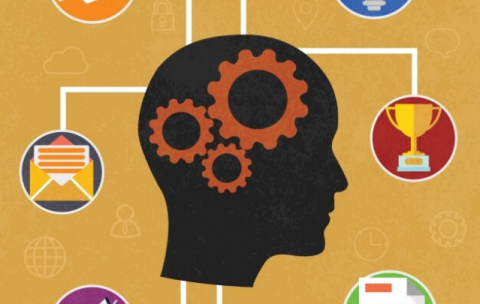Popular Instructors
All Construction: Building infrastructure, real estate development, etc. Courses
Innovative Product Development and Design
Innovative Product Development and Design is a dynamic process that …
What you'll learn
Week 1: Fundamentals of Product Development and Design (4 Hours)
Session 1 (2 Hours): Introduction to Product Development
Overview of the Product Development Process
Key Principles and Stages of Product Design
Trends and Challenges in Modern Product Development
Session 2 (2 Hours): Creativity and Innovation in Product Design
Fostering Creativity and Innovation in Teams
Techniques for Idea Generation and Concept Development
Case Studies of Innovative Product Designs
Week 2: Design Thinking and User-Centric Approaches (6 Hours)
Session 3 (2 Hours): Design Thinking and User Experience
Principles of Design Thinking Methodology
Incorporating User Experience (UX) in Product Design
Workshop on Design Thinking in Practice
Session 4 (2 Hours): Market Research and Consumer Insights
Conducting Market Research for Product Development
Understanding Consumer Needs and Preferences
Translating Insights into Product Features
Session 5 (2 Hours): Prototyping and Testing
Prototyping Techniques and Tools
Effective Testing and Validation Strategies
Iterative Design and Feedback Loops
Week 3: Managing the Product Development Process (6 Hours)
Session 6 (2 Hours): Project Management in Product Development
Applying Project Management Techniques in Product Design
Balancing Time, Cost, and Quality Constraints
Agile and Lean Approaches in Product Development
Session 7 (2 Hours): Sustainable and Ethical Design Practices
Incorporating Sustainability in Product Design
Ethical Considerations in Product Development
Lifecycle Analysis and Eco-friendly Materials
Session 8 (2 Hours): Intellectual Property and Legal Aspects
Basics of Intellectual Property in Product Development
Protecting Designs and Patents
Legal and Regulatory Compliance in Product Development
Week 4: Commercialization and Strategic Launch (4 Hours)
Session 9 (2 Hours): Product Launch and Commercialization Strategies
Planning for Product Launch and Market Entry
Marketing and Branding Strategies for New Products
Case Studies on Successful Product Launches
Session 10 (2 Hours): Capstone Project and Course Conclusion
Capstone Project: Developing a Comprehensive Product Development Plan
Presentations and Group Critiques
Course Wrap-Up and Future Trends in Product Development and Design
This course structure offers a comprehensive overview of the product development process, blending theoretical knowledge with case studies, workshops, and a capstone project for practical application. The curriculum is designed to prepare MBA students for leadership roles in product development and design, emphasizing innovation, user-centric approaches, and effective management strategies.
Construction Project Management and Sustainable Practices
Construction Project Management and Sustainable Practices represent a comprehensive approach …
What you'll learn
Week 1: Fundamentals of Construction Project Management (4 Hours)
Session 1 (2 Hours): Introduction to Construction Project Management
Overview of the Construction Industry
Key Principles and Phases of Construction Project Management
Roles and Responsibilities in a Construction Project
Session 2 (2 Hours): Project Planning and Scheduling
Techniques for Effective Project Planning and Scheduling
Utilizing Tools Like Gantt Charts and Critical Path Method (CPM)
Case Studies on Successful Project Planning in Construction
Week 2: Advanced Topics in Construction Management (6 Hours)
Session 3 (2 Hours): Budgeting and Cost Management
Budgeting Techniques in Construction Projects
Cost Estimation and Control Strategies
Financial Risk Management in Construction
Session 4 (2 Hours): Quality Management and Safety Standards
Quality Assurance and Quality Control in Construction
Implementing Safety Standards and Regulations
Best Practices for Ensuring Workplace Safety
Session 5 (2 Hours): Contract Management and Legal Aspects
Understanding Construction Contracts and Agreements
Legal Issues and Dispute Resolution in Construction
Procurement Strategies and Vendor Management
Week 3: Sustainable Practices in Construction (6 Hours)
Session 6 (2 Hours): Principles of Sustainable Construction
Sustainability in Construction: Concepts and Practices
Green Building Standards and Certifications (e.g., LEED, BREEAM)
Environmental Impact Assessment for Construction Projects
Session 7 (2 Hours): Sustainable Materials and Technologies
Selection and Sourcing of Sustainable Materials
Technological Innovations Promoting Sustainability
Case Studies on Green Construction Projects
Session 8 (2 Hours): Energy Efficiency and Waste Management
Designing for Energy Efficiency in Construction
Waste Reduction Strategies and Recycling Practices
Sustainable Water and Resource Management
Week 4: Practical Applications and Capstone Project (4 Hours)
Session 9 (2 Hours): Project Simulation Workshop
Interactive Workshop on Managing a Simulated Construction Project
Applying Sustainable Practices in Project Scenarios
Group Collaboration and Problem-Solving Exercises
Session 10 (2 Hours): Capstone Project Presentations and Course Conclusion
Development and Presentation of Capstone Projects Focused on Sustainable Construction Project Management
Group Critique and Feedback
Course Summary and Reflection on Future Trends in Sustainable Construction
This course structure ensures MBA students gain a robust understanding of construction project management with a special focus on sustainability, preparing them for leadership roles in the evolving construction industry. The blend of lectures, case studies, and practical project work is designed to enhance both theoretical knowledge and practical skills.
Introduction to Critical Thinking
Brief Introduction: The course “Introduction to Critical Thinking” is designed …
What you'll learn
Understand the importance of critical thinking in the business context.
Develop analytical skills to evaluate information and data effectively.
Apply logical reasoning frameworks to analyze complex problems.
Enhance decision-making abilities through critical thinking.
Identify biases and assumptions that may impact decision-making processes.
Improve problem-solving skills by employing critical thinking techniques.
Enhance communication and presentation skills to effectively articulate critical analysis.
Develop the ability to evaluate the credibility and reliability of sources.
Foster creativity and innovative thinking through critical analysis.
Apply critical thinking to ethical considerations and business dilemmas.





